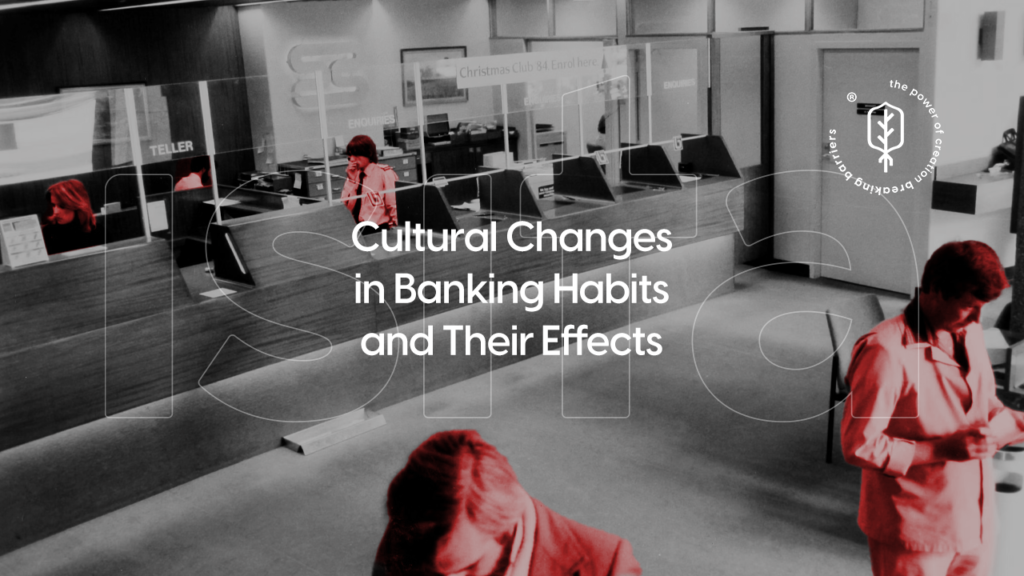In today’s competitive business landscape, customer success is more than a buzzword—it’s a crucial strategy for fostering long-term relationships and ensuring mutual growth.
At the heart of this approach lies the role of a Customer Success Analyst, a professional dedicated to understanding client needs, optimizing their experience, and driving value throughout the customer lifecycle.
This article explores the importance of a Customer Success Analyst, their key responsibilities, and how they play a pivotal role in building and maintaining stronger client relationships.
Who Is a Customer Success Analyst?
A Customer Success Analyst is a specialist focused on ensuring customers achieve their desired outcomes with a company’s products or services. Unlike traditional customer service roles, this position is proactive, aiming to anticipate client needs and mitigate issues before they arise. By working closely with customers, a Customer Success Analyst helps them derive maximum value, fostering satisfaction and loyalty.
This role is especially critical for businesses offering complex solutions, such as custom software development. For companies like IsitaTech, which provide tailor-made software solutions, a Customer Success Analyst ensures that clients not only receive robust technical support but also fully understand and utilize the delivered tools to meet their unique business goals.
The Key Responsibilities of a Customer Success Analyst
The scope of a Customer Success Analyst’s work spans multiple areas, each aimed at enhancing the customer journey. Their primary responsibilities include:
1. Onboarding and Implementation Support
The journey with a product or service often begins with onboarding. A Customer Success Analyst ensures a seamless transition for clients by guiding them through implementation and addressing potential roadblocks early on.
- Example: For a company adopting custom software developed by IsitaTech, the Customer Success Analyst would ensure that stakeholders are well-trained on the software’s functionalities and that it integrates smoothly with existing processes.
2. Data-Driven Insights
Customer Success Analysts rely heavily on data to monitor client usage patterns, satisfaction levels, and potential pain points. By analyzing this data, they can identify trends and suggest improvements to enhance the customer experience.
- Example: If analytics indicate that a client underutilizes a particular software feature, the analyst can arrange targeted training sessions or propose tailored updates to boost usability.
3. Proactive Problem Solving
Rather than waiting for clients to raise issues, a Customer Success Analyst proactively identifies potential challenges and resolves them. This approach builds trust and demonstrates the company’s commitment to client success.
4. Relationship Management
Maintaining open and transparent communication with clients is a core function of this role. Regular check-ins and feedback sessions ensure that clients feel valued and heard, strengthening the relationship over time.
5. Collaboration Across Teams
Customer Success Analysts act as a bridge between clients and internal teams, such as development, sales, and marketing. Their insights help refine products and services, ensuring they continue to meet evolving client needs.
- Example: If a client using custom software requests additional features, the analyst can collaborate with IsitaTech’s development team to incorporate these changes seamlessly.
The Value of a Customer Success Analyst in Custom Software Development
Custom software development is a field where customer success is particularly vital. Unlike off-the-shelf solutions, custom software is designed to address specific business needs, making the role of a Customer Success Analyst indispensable for companies like IsitaTech.
Tailored Support
Every custom software project is unique, requiring a deep understanding of the client’s industry, challenges, and objectives. A Customer Success Analyst ensures that the software aligns perfectly with these factors and continues to deliver value as the business grows.
Maximizing ROI
Investing in custom software is a significant commitment. A Customer Success Analyst helps clients maximize their return on investment (ROI) by ensuring the software is fully utilized and provides measurable benefits.
Driving Innovation
Customer feedback gathered by a Customer Success Analyst often serves as the foundation for innovation. By understanding user experiences and identifying areas for improvement, analysts enable companies like IsitaTech to enhance their offerings and stay ahead in the market.
Essential Skills for a Customer Success Analyst
To succeed in their role, a Customer Success Analyst must possess a blend of technical knowledge, interpersonal skills, and strategic thinking. Key skills include:
1. Communication Skills
Clear and empathetic communication is essential for building trust and resolving issues effectively. Whether explaining complex technical concepts or gathering feedback, strong communication ensures smooth interactions with clients.
2. Analytical Thinking
Customer Success Analysts must be able to interpret data and translate insights into actionable strategies. Analytical skills are crucial for identifying trends, predicting customer behavior, and proposing improvements.
3. Technical Proficiency
A solid understanding of the company’s products or services, especially in tech-focused industries like custom software development, is non-negotiable. This enables the analyst to provide informed support and training.
4. Problem-Solving Ability
Being proactive and solution-oriented allows a Customer Success Analyst to address challenges efficiently. Their ability to think critically and adapt quickly is invaluable in maintaining customer satisfaction.
5. Relationship Building
Strong interpersonal skills help analysts forge lasting connections with clients. Building rapport fosters trust and encourages clients to share honest feedback, which is vital for continuous improvement.
Measuring the Success of a Customer Success Analyst
The impact of a Customer Success Analyst can be evaluated through various metrics, including:
1. Customer Retention Rate
A high retention rate indicates that clients are satisfied with the company’s products and services. Customer Success Analysts play a key role in maintaining these relationships.
2. Net Promoter Score (NPS)
NPS measures customer loyalty by asking how likely clients are to recommend the company’s services. Positive scores reflect the success of the analyst’s efforts.
3. Usage Metrics
In industries like custom software development, tracking how often and effectively clients use the software provides insights into its value and usability.
4. Feedback and Testimonials
Direct feedback from clients serves as a qualitative measure of success. Positive testimonials highlight the analyst’s role in ensuring customer satisfaction.
Challenges Faced by Customer Success Analysts
Despite their critical role, Customer Success Analysts face challenges that require adaptability and strategic thinking. Here are some common obstacles and how they overcome them:
1. Managing Diverse Client Expectations
Every client has unique needs and expectations, which can sometimes conflict with standard processes or timelines. A Customer Success Analyst must balance these demands while ensuring the company’s capabilities are not overstretched.
- Solution: Analysts rely on clear communication and goal alignment, setting realistic expectations and ensuring clients are involved in the planning process. For example, when working with IsitaTech, they might outline how custom software development timelines ensure quality and scalability.
2. Data Overload
With the increasing reliance on data, analysts often face the challenge of sifting through large volumes of information to identify actionable insights.
- Solution: Leveraging tools like CRM platforms and analytics software helps streamline this process. A Customer Success Analyst ensures that the data collected is relevant and directly tied to customer outcomes.
3. Balancing Proactive and Reactive Tasks
While the role emphasizes proactivity, some situations require immediate reactive responses to address unforeseen client issues.
- Solution: Establishing a balance between planned activities and ad-hoc problem-solving ensures that no aspect of customer success is neglected.
4. Keeping Up with Technological Advances
In fields like custom software development, staying informed about new technologies and trends is crucial for providing relevant advice and solutions.
- Solution: Continuous learning and collaboration with development teams at companies like IsitaTech enable analysts to stay ahead of industry changes and maintain their expertise.
The Future of the Customer Success Analyst Role
The role of a Customer Success Analyst is evolving alongside advancements in technology and changes in customer expectations. Several trends are shaping the future of this profession:
1. Increased Use of AI and Automation
AI-powered tools are becoming integral to customer success strategies, helping analysts predict customer behavior, automate routine tasks, and provide personalized recommendations.
- Example: At IsitaTech, AI could help analysts track software usage patterns and recommend features that clients may not yet be utilizing effectively.
2. Greater Focus on Personalization
Clients increasingly expect solutions tailored to their specific needs. This trend makes the personalized support provided by Customer Success Analysts more important than ever.
3. Integration with Product Development
As customer feedback becomes central to innovation, analysts will play a larger role in product development cycles, ensuring that solutions align closely with client needs.
How IsitaTech Supports Customer Success
For companies like IsitaTech, the role of a Customer Success Analyst is essential for delivering value to clients. IsitaTech specializes in custom software development, offering tailored solutions that address unique business challenges. Their commitment to customer success is evident in how they integrate analysts into every stage of the client journey, from initial onboarding to ongoing support.
- Custom Solutions: IsitaTech’s software is designed to adapt to the client’s industry and goals, ensuring that businesses get exactly what they need.
- Collaborative Approach: By involving Customer Success Analysts, IsitaTech ensures that clients remain engaged and informed throughout the development process.
- Long-Term Value: With a focus on scalability and user satisfaction, IsitaTech empowers businesses to achieve sustainable growth with their custom software solutions.
Whether you’re looking to enhance your client relationships or streamline your operations with tailor-made software, a Customer Success Analyst can make all the difference.
Explore how IsitaTech’s custom software development can transform your business, backed by dedicated customer success strategies designed to meet your unique needs. Take the next step toward stronger client relationships and greater business success today!



